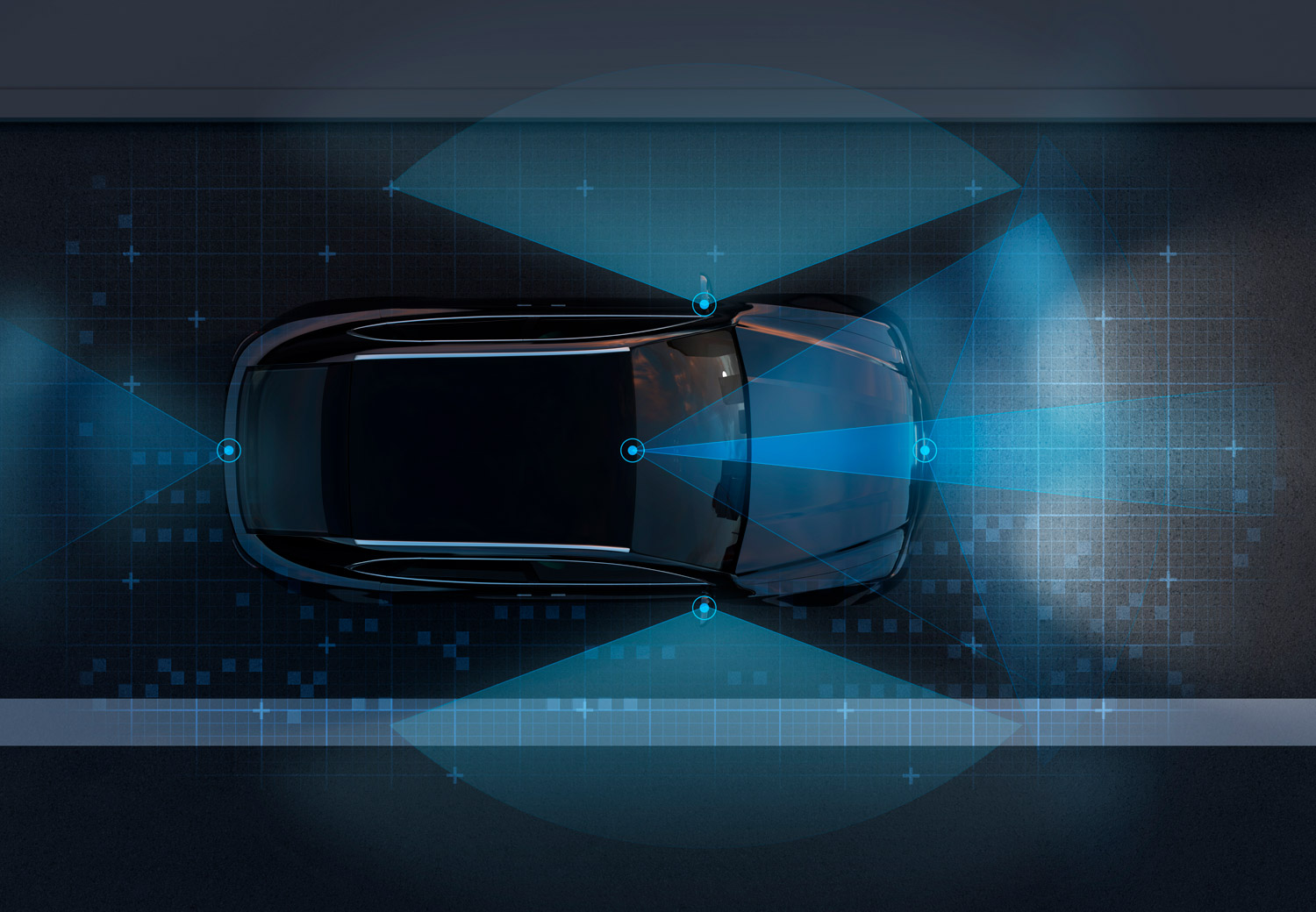
SLA – SerDes Logging Adapter
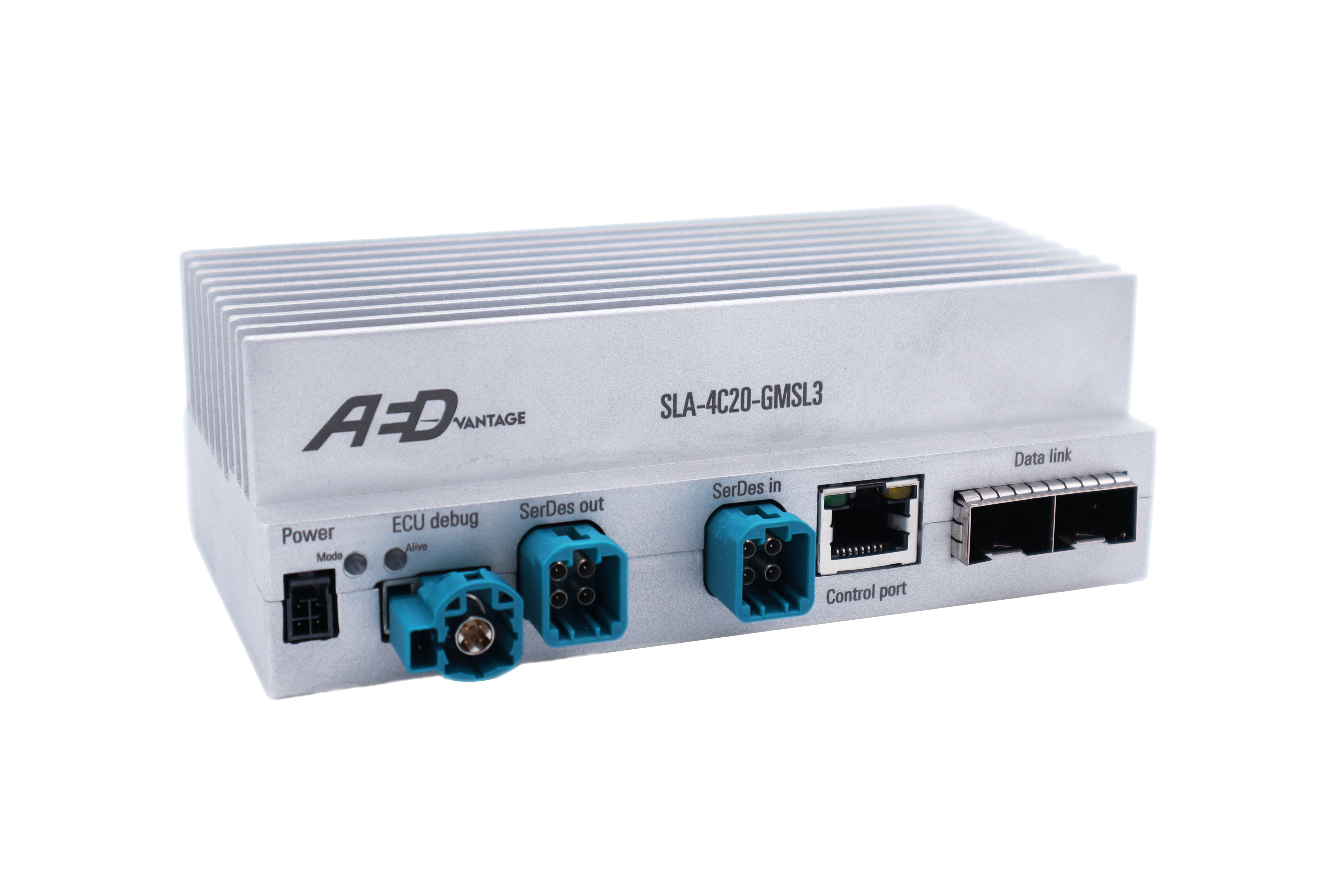
SLA – SerDes Logging Adapter
- SerDes Logging & Replay
- different SLA variants available
- up to 4 video channels
- up to 20 Gb/s link over SFP+
- supports GMSL2, GMSL3 (Maxim/ADI) or FPD Link III & IV (Texas Instruments)
- gPTP or PTP time sync.
Useful information
- Data Sheets
- User Instructions Manuals
- Tutorials
Applications
- SerDes data recording
- Re-injection on a HiL
Contact us
How can we help you?
For further information on our automotive products and services, kindly contact us with your specific inquiry and we’ll get back to you as soon as possible.
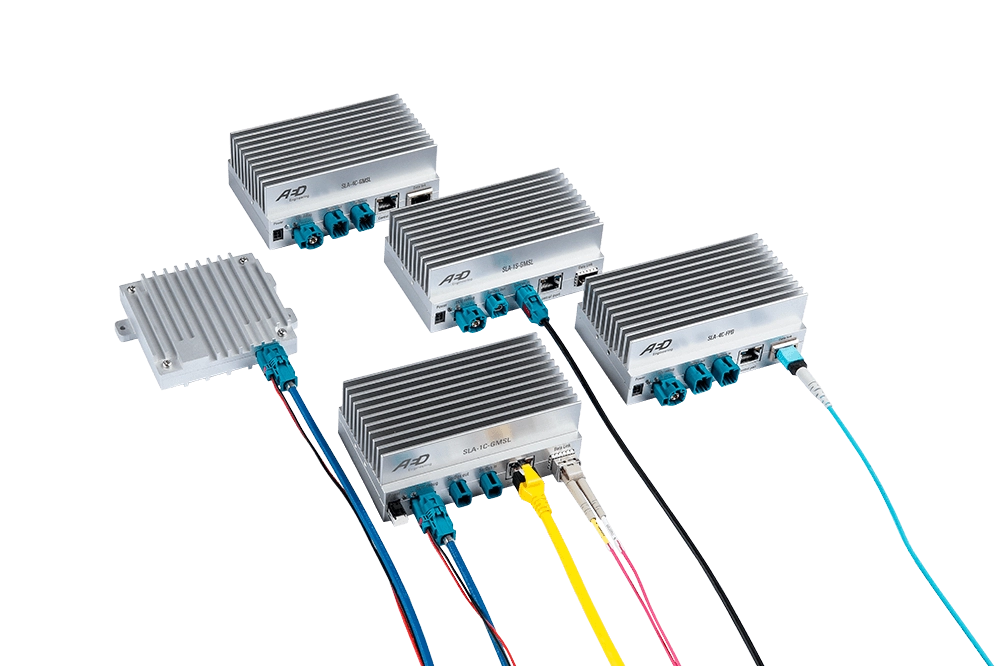
SLA Variants & Accessories
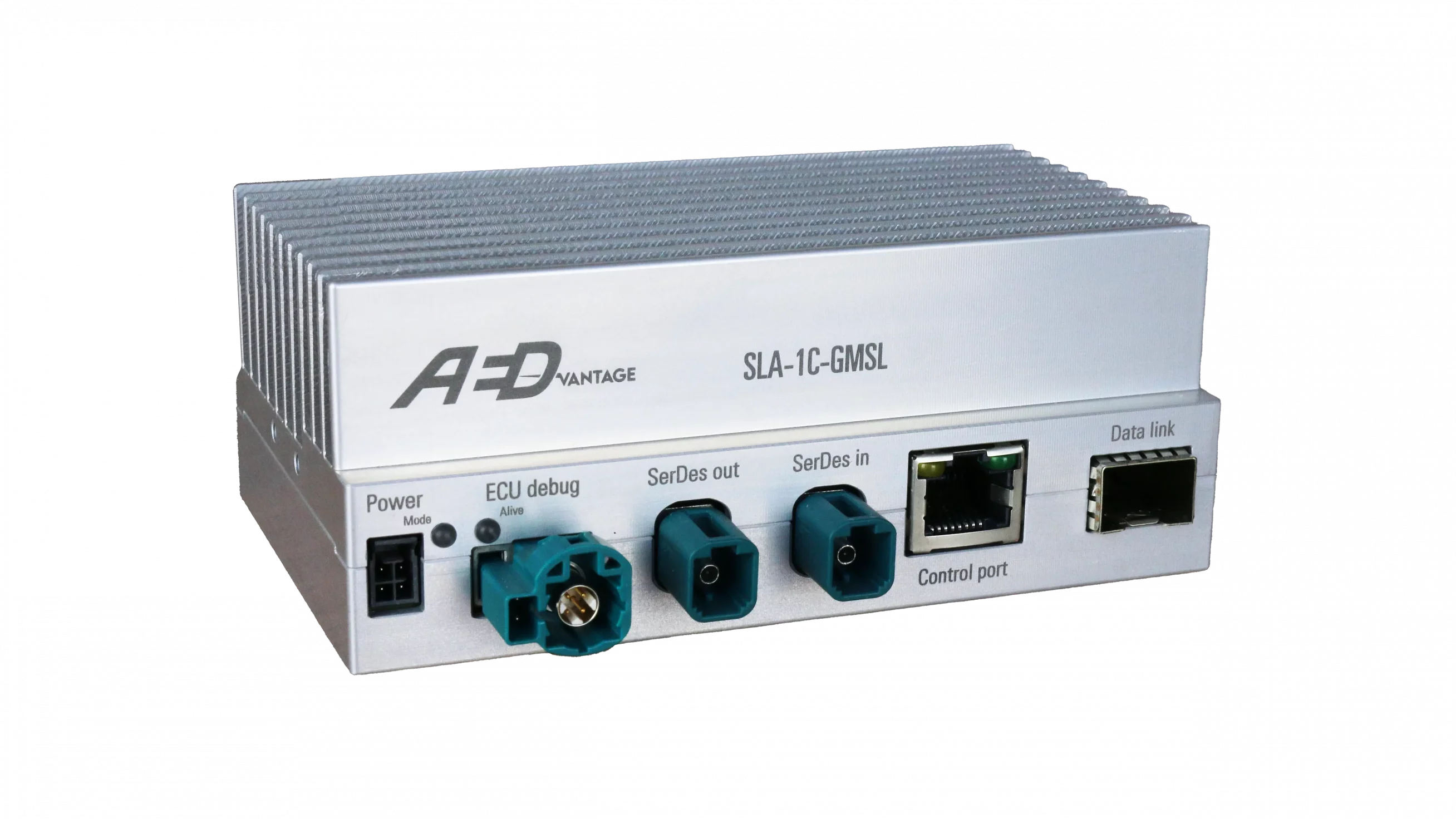
SLA-1C-GMSL
- SerDes Logging & Replay
- 1 Channel
- Coax
- 10 Gb/s link over SFP+
- GMSL2 up to 6 Gb/s (Maxim/ADI)
- gPTP or PTP time sync.
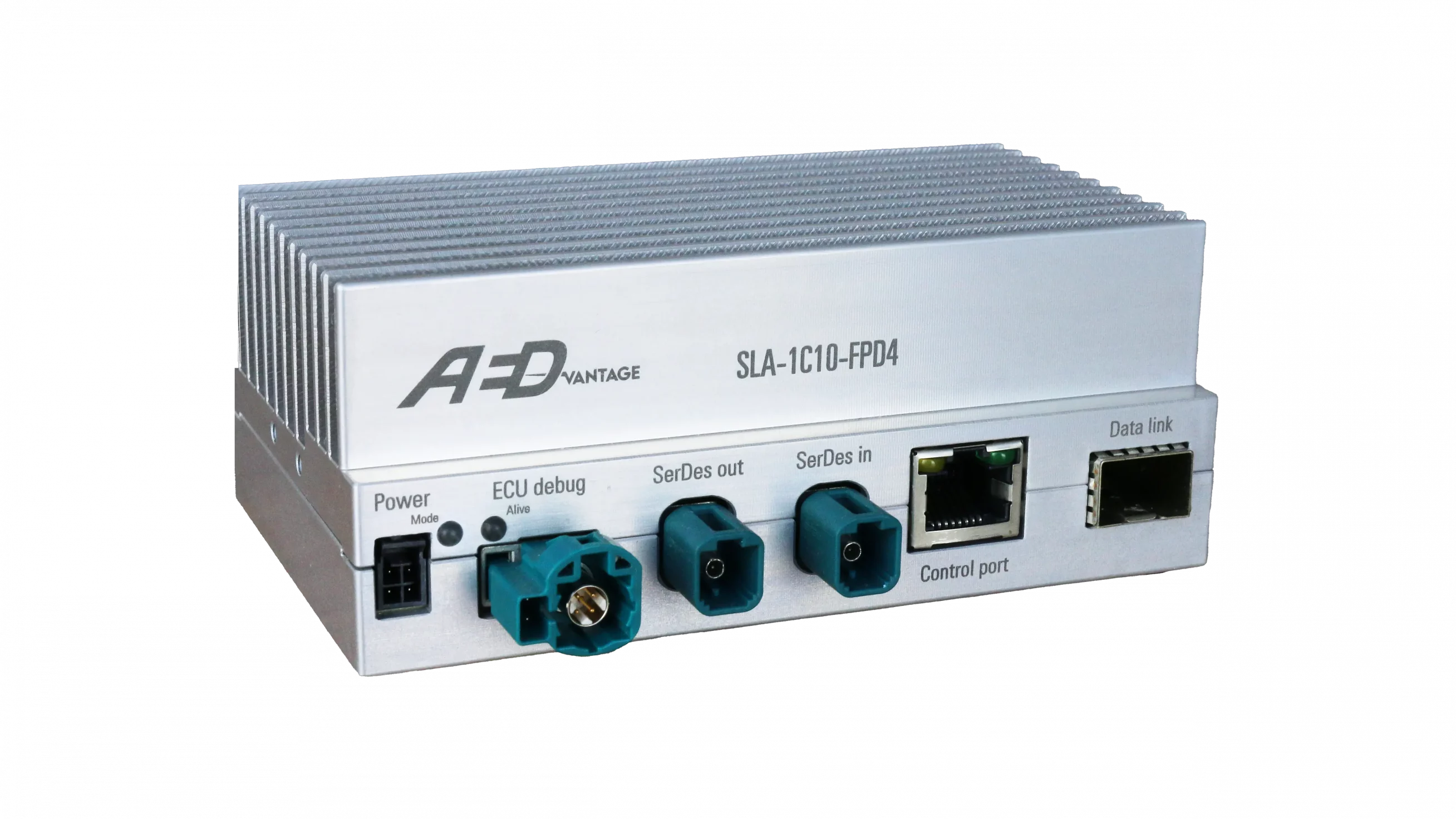
SLA-1C10-FPD4
- SerDes Logging & Replay
- 1 Channel
- Coax
- 10 Gb/s link over SFP+
- FPD Link III & IV up to 6 Gb/s (Texas Instruments)
- gPTP or PTP time sync.
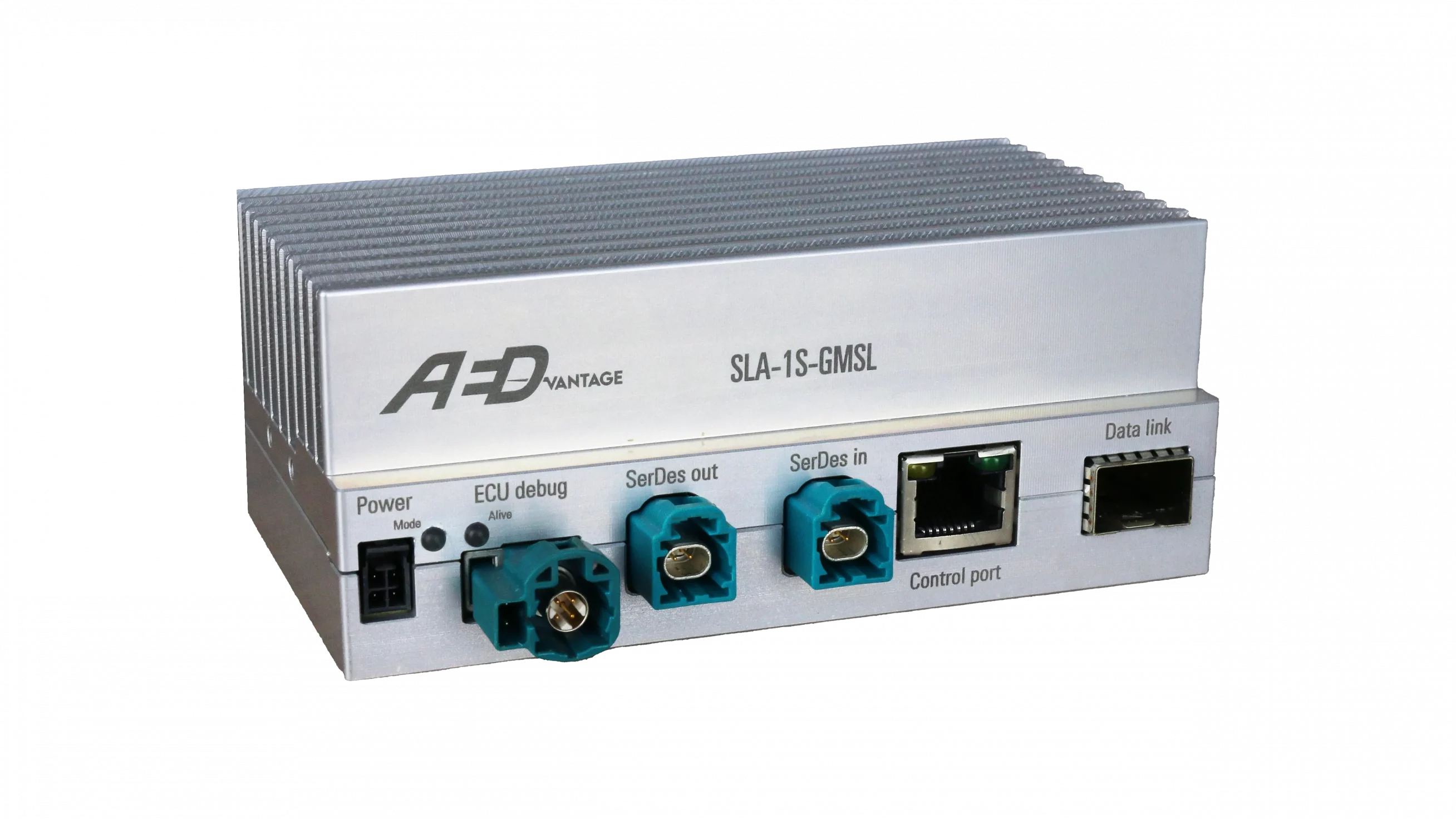
SLA-1S-GMSL
- SerDes Logging & Replay
- 1 Channel
- STP (Shielded Twisted Pair)
- 10 Gb/s link over SFP+
- GMSL2 up to 6 Gb/s (Maxim/ADI)
- gPTP or PTP time sync.
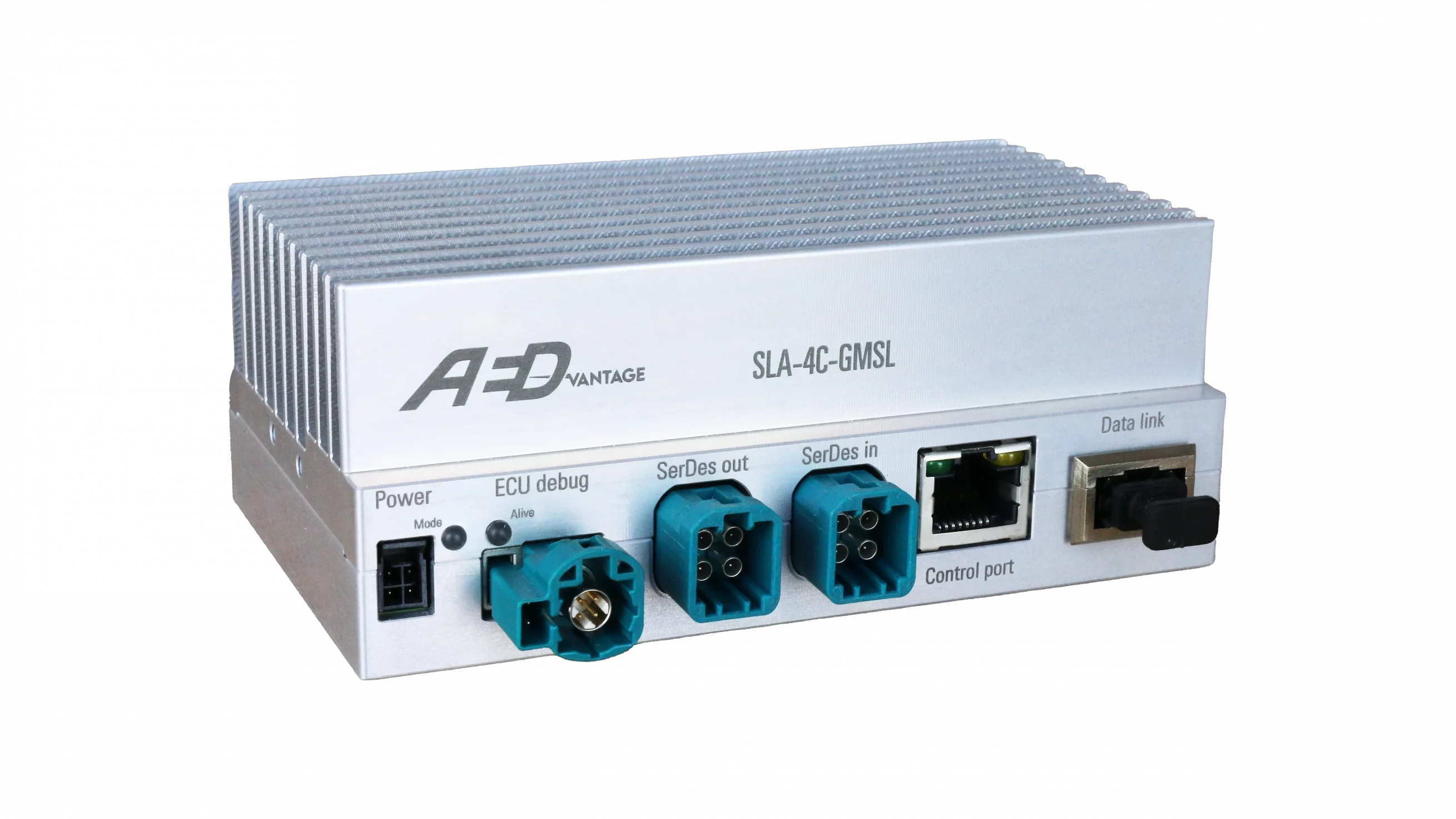
SLA-4C-GMSL
- SerDes Logging & Replay
- 4 Channel
- Coax
- 30 Gb/s link over optical MPO
- GMSL2 up to 6 Gb/s (Maxim/ADI)
- gPTP or PTP time sync.
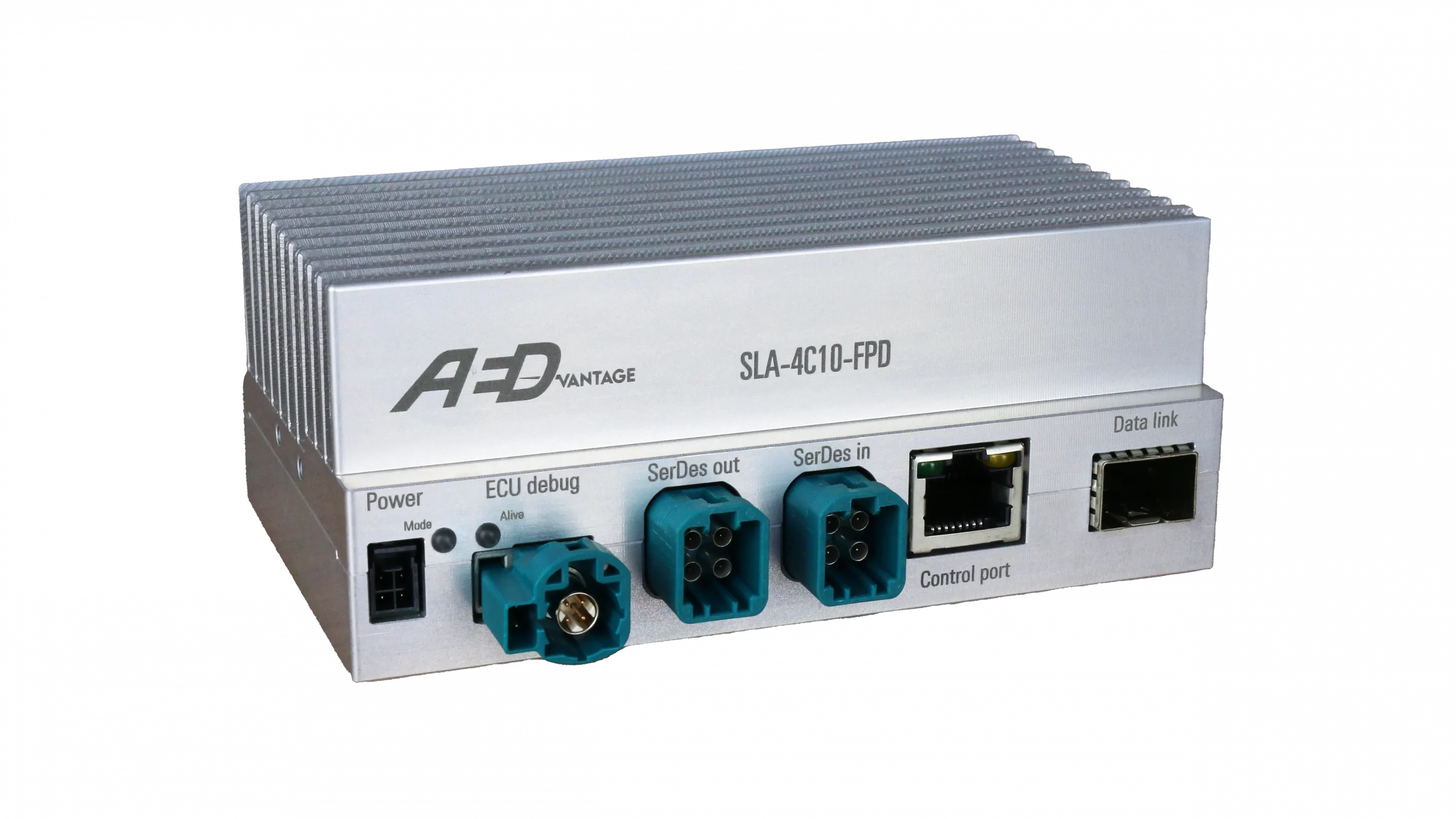
SLA-4C10-FPD
- SerDes Logging & Replay
- 4 Channel
- Coax
- 10 Gb/s link over SFP+
- FPD Link III up to 4,15 Gb/s (Texas Instruments)
- gPTP or PTP time sync.
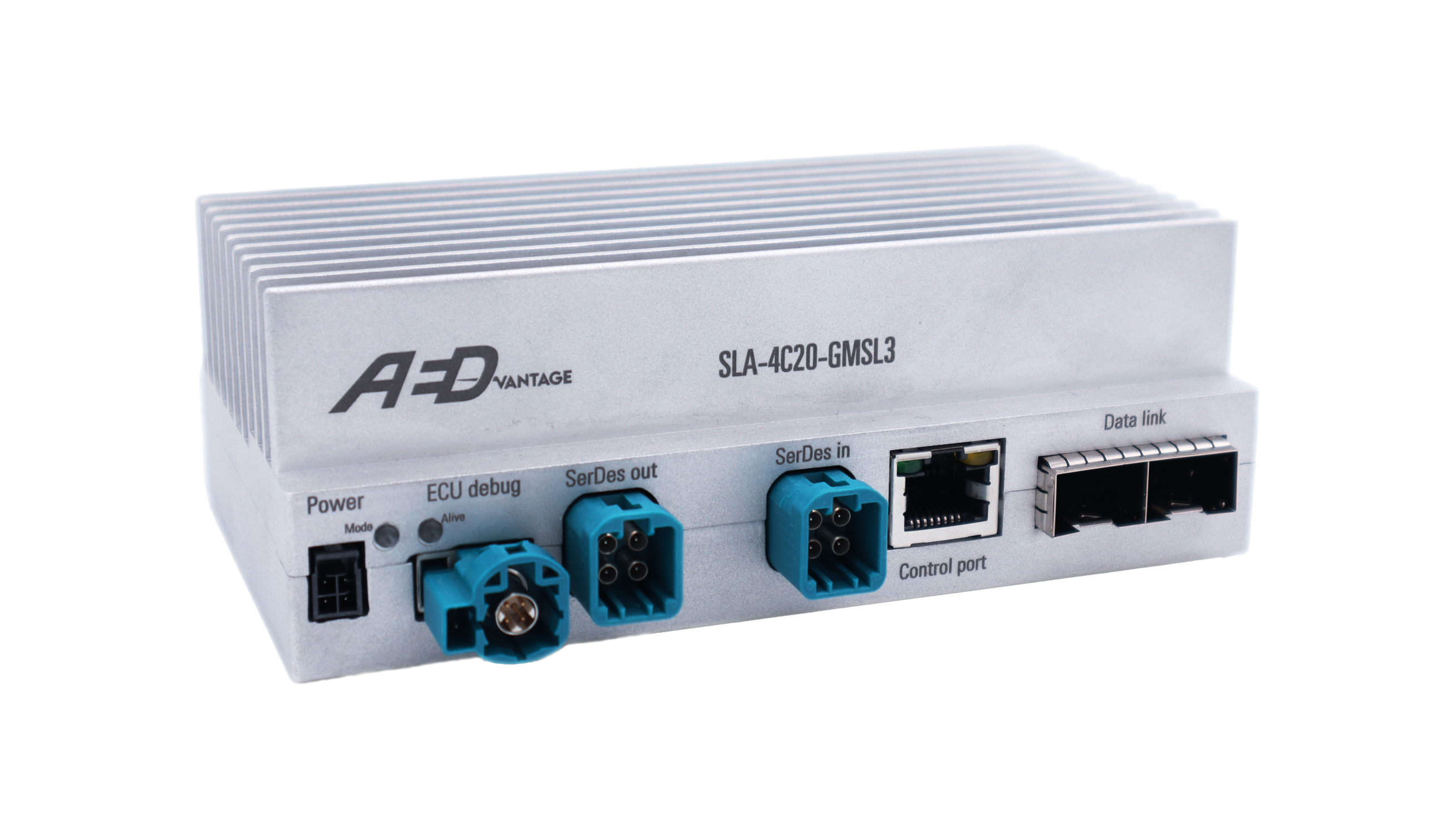
SLA-4C20-GMSL3
- SerDes Logging & Replay
- 4 Channel
- Coax
- 20 Gb/s link over SFP+
- GMSL2, GMSL3 up to 12 Gb/s (Maxim/ADI)
- gPTP or PTP time sync.
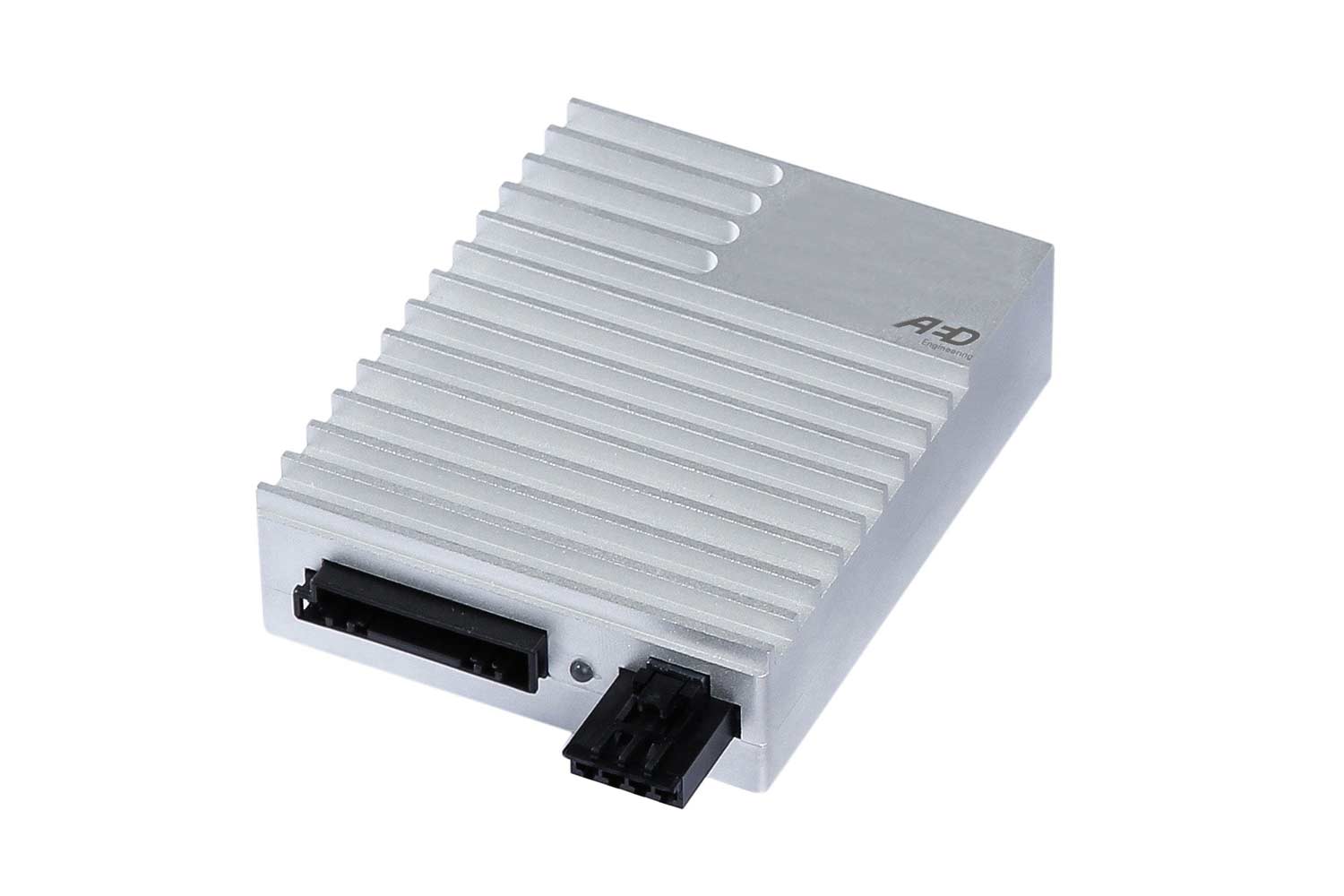
SLA – DCDC – 30W
The galvanically isolated power supply for the SLA is specially designed for automotive test setups and prevents ground loops, especially when using coax signal lines.
- Wide input voltage range.
- Up to 30 W output power.
- Two wake-up pins.
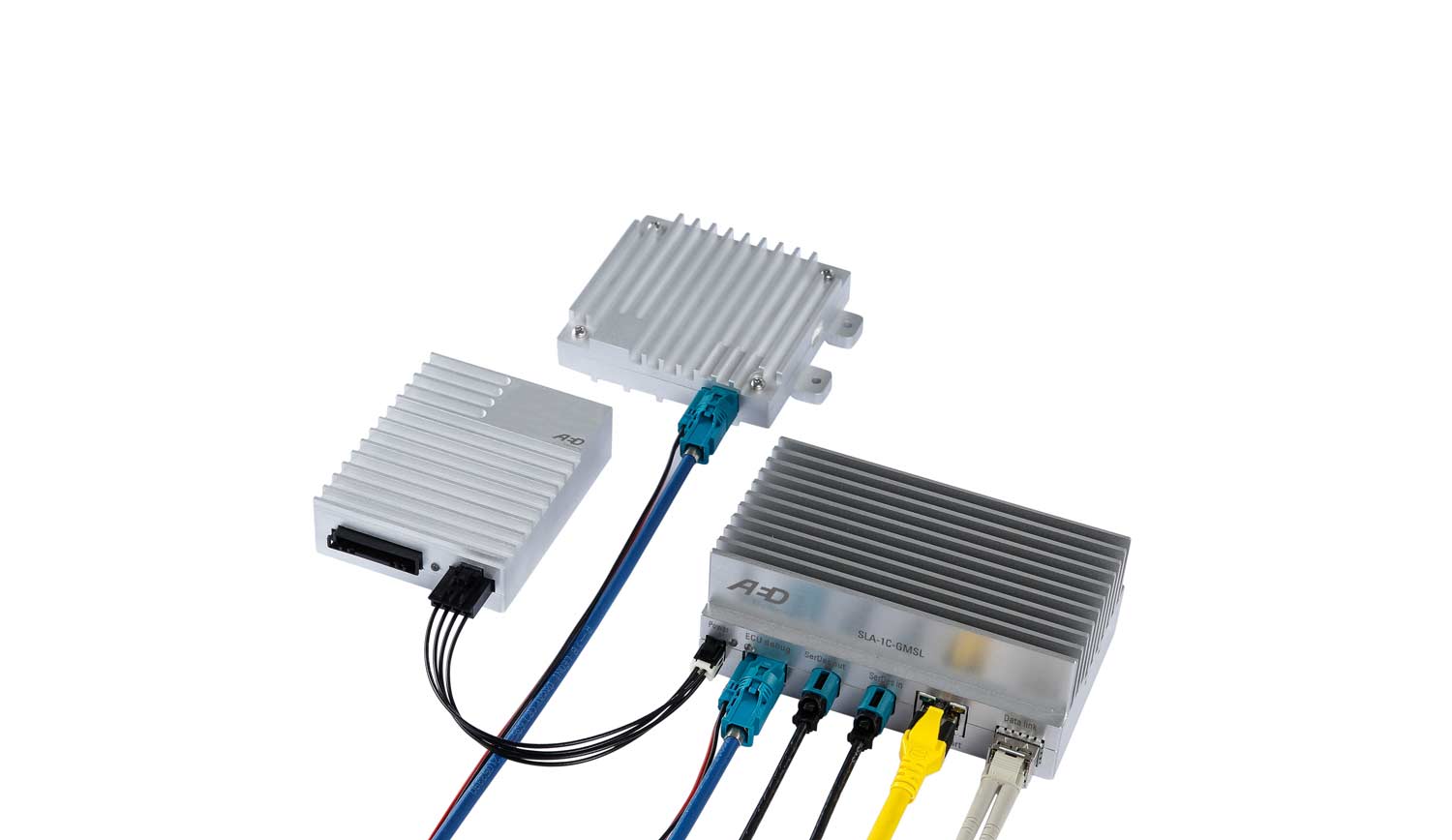
SLA EXTENSION BOX
An SLA Extension Box is used to record additional protocols. The adapter board is often used to record debug interfaces of an ECU or other interfaces parallel to the sensor data.
- Many supported interface types, such as Ethernet RGMII (1Gbit/s), MIPI CSI-2.
- High-precision time stamping including external synchronization by SLA.
HiL-Framework
Our software application allows you to unpack recorded sensor data live in your HiL system and finally send it to your ECU (re-injection).
- Used in open-loop HiL environments as data injection.
- Reinjection of recorded scenes stored in PCAP or MDF format.
- High computing efficiency for the lowest possible hardware requirements for the computer.
- Total application data rate up to 15 Gbit/s (3 Gbit/s for each SLA – could be higher or lower depending on the performance of the computer).
- High accuracy time synchronization.
- And more …
Decompression software
Highly optimized OpenCL-based decompression algorithm.
- Uses GPU as well as multi-core and many-core CPU processing power.
- PCAP file format.
- Supports row-based compressed recorded data.
- High performance due to massively parallel processing
Lossless JPEG-1.
MDF compression / decompression software
Part of the complete tool chain for validation systems.
- Flexibility by compression and decompression algorithm.
- MDF file format.
- Lossless JPEG-1 and LZRW1-A.
Applications with the SLA
Semi-autonomous and autonomous vehicle functions must be validated in the development phase of different vehicle classes. This results in enormous amounts of data generated by cameras, lidar systems, radar, and other sensors.
These data have to be interpreted by many control units in the vehicle to enable autonomous driving later. Our SerDes Logging Adapter family (SLA family) supports you in recording the enormous variety of data in test vehicles and using it for various validation phases. As a member of the Automotive SerDes Alliance (ASA), we also promote the standardization of SerDes technology in the automotive market.
The challenge
As high-resolution cameras are increasingly used in vehicles, high data rates are generated on the signal path between sensors and control unit.
On the one hand, the difficulty lies in forwarding the data to the receiver control unit with low latency without disturbing normal operation. On the other hand, the data packets must be time-stamped at the same time, optionally compressed live, packaged and finally sent to a data logger.
The solution
Our SerDes Logging Adapter (Serializer/Deserializer Logging Adapter), SLA for short, ensures all these challenges. It serves as a data bridge between the sensors and the ECUs. In doing so, it manages the data
- lossless and without noticeable delays to the control unit,
- provides them with high-precision time stamps,
- and passes the data on to a data logger.
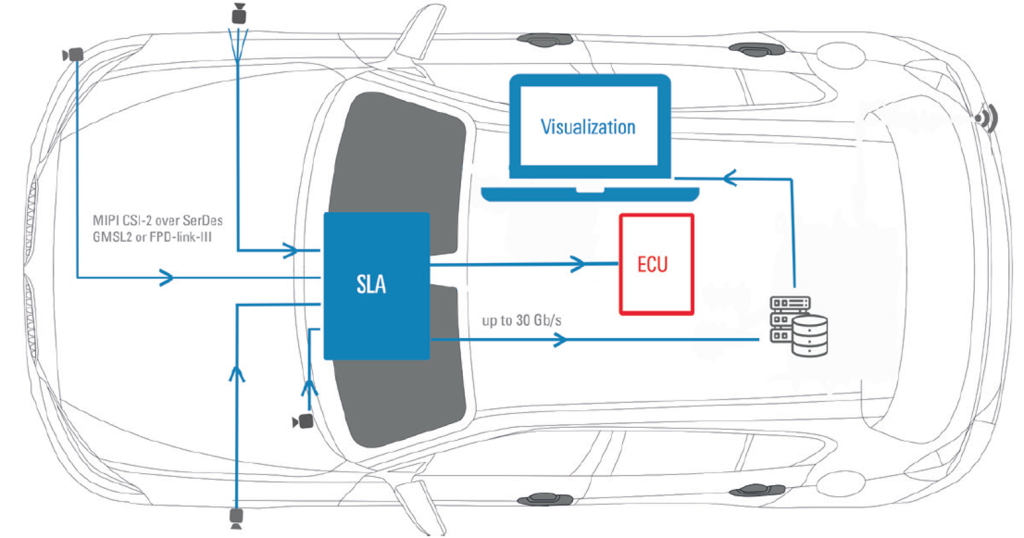
Data recording in a test vehicle
The SLA is connected in the SerDes line between the sensor and ECU without the system noticing that there is anything in between. Our device …
… forwards the sensor data to the ECU for normal in-vehicle processing. At the same time, the SLA stamps the received data with a precise time stamp, packets the data and sends it to the data logger via one or more 10 Gb/s Ethernet ports (SFP+).
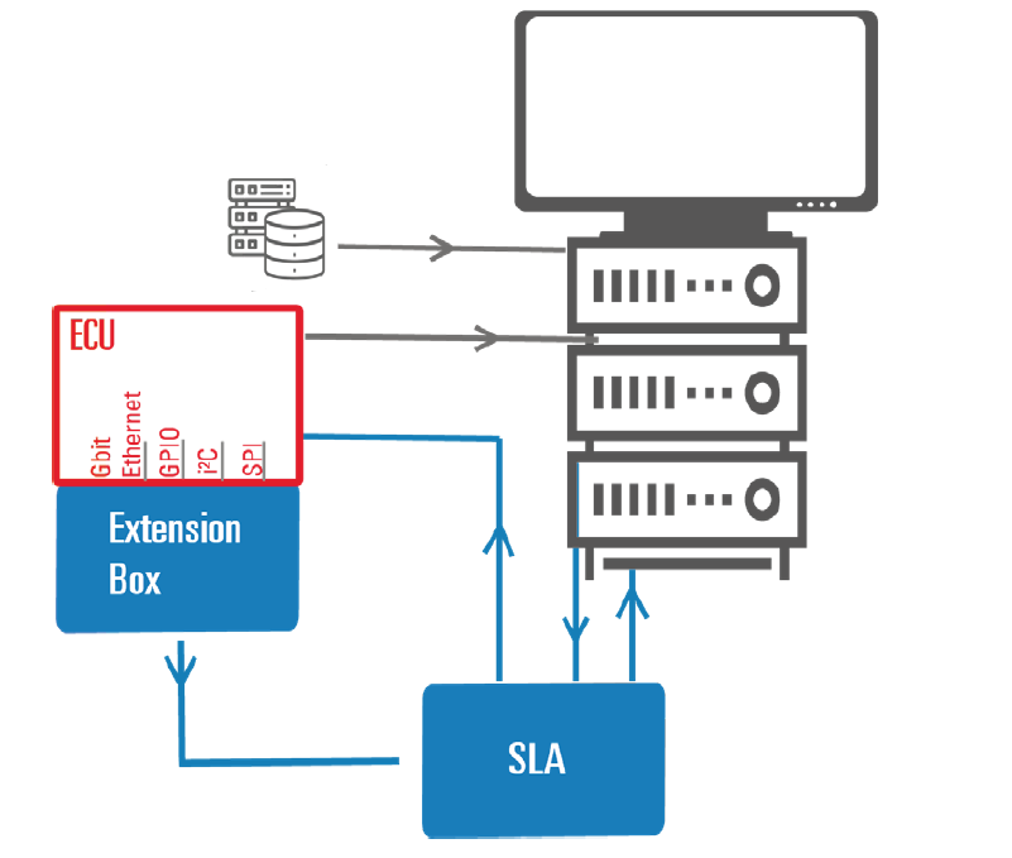
Re-Injection in a HiL environment
The SLA can re-inject recorded video data or even receives simulated data for simulations in a HiL environment.
open-loop
Monitor how the system reacts in each scenario recorded in the past (reproducible validation scenarios). The SLA receives the recorded data packets via one or more 10Gb/s Ethernet ports. The data is then unpacked and decompressed while the original data stream is reconstructed packet by packet. The SLA sends the data stream to the control unit with exactly the same timing as the packets were recorded.
closed-loop
The SLA receives simulated data, unpacks it and uses it to generate a data stream that is sent to the control unit with minimal latency. The simulation computer usually evaluates the reaction of the control unit at the same time and adjusts the rendered data stream accordingly.
Contact us
How can we help you?
For further information on our automotive products and services, kindly contact us with your specific inquiry and we’ll get back to you as soon as possible.
